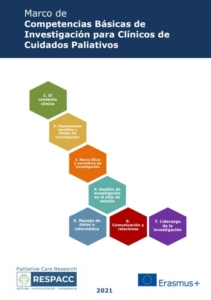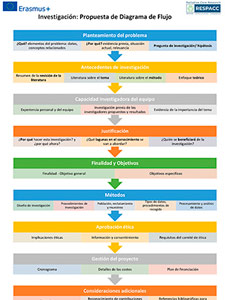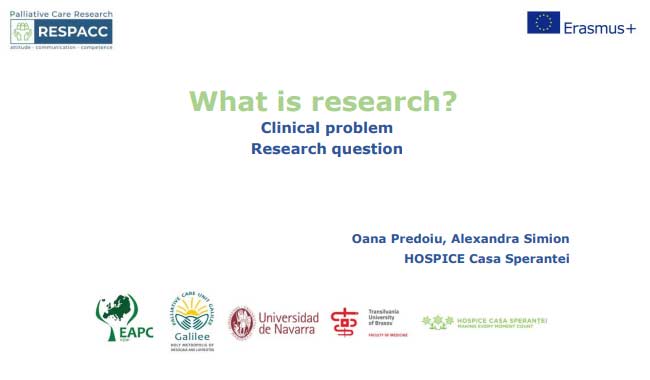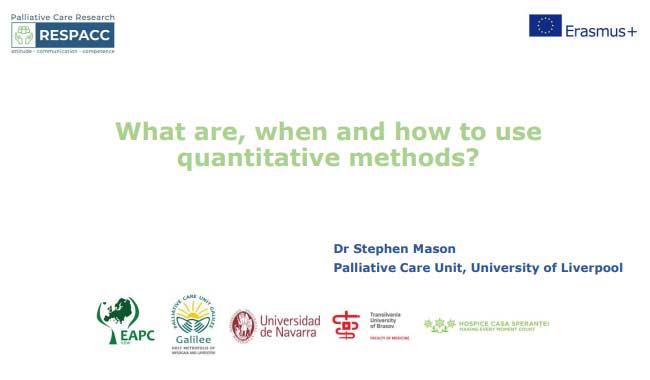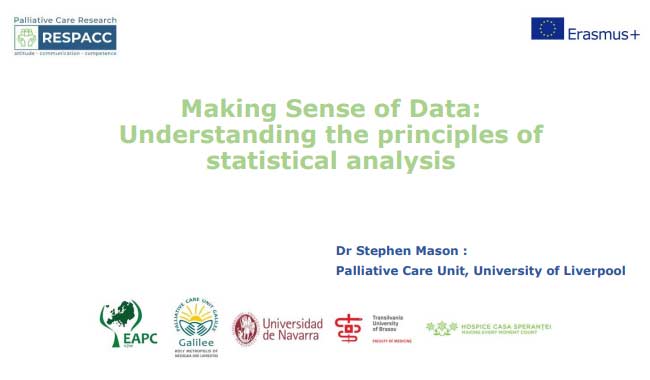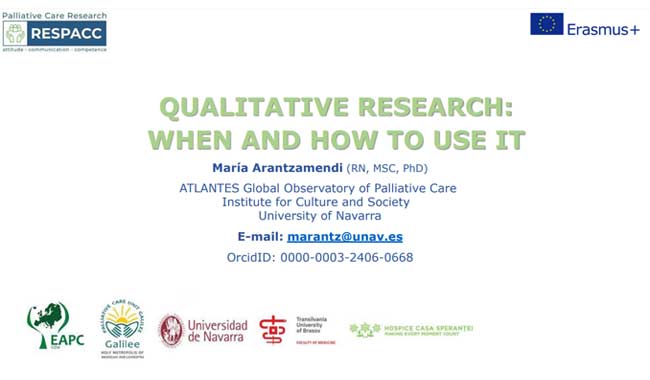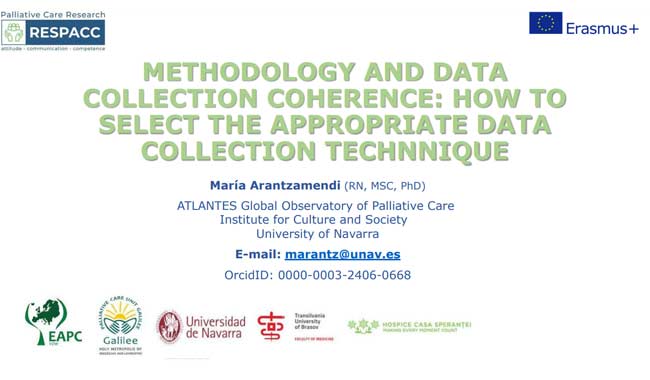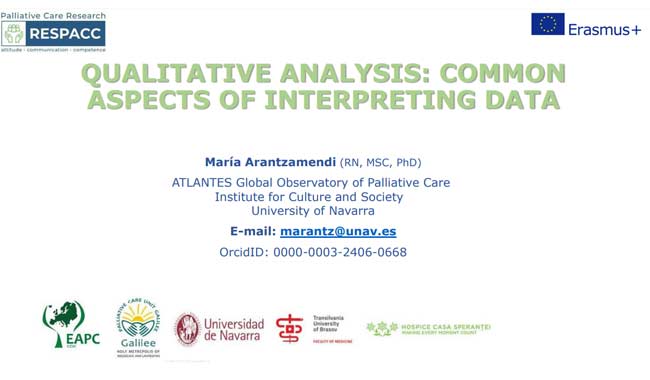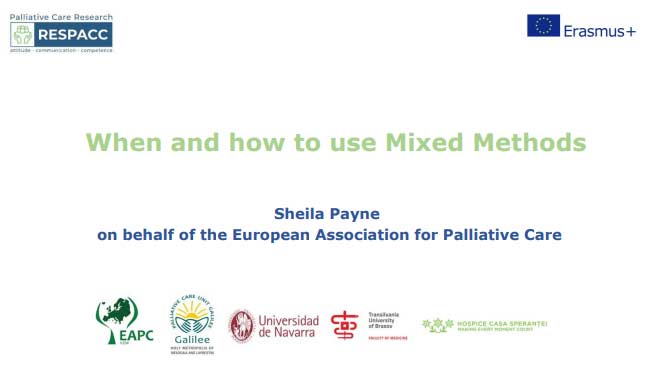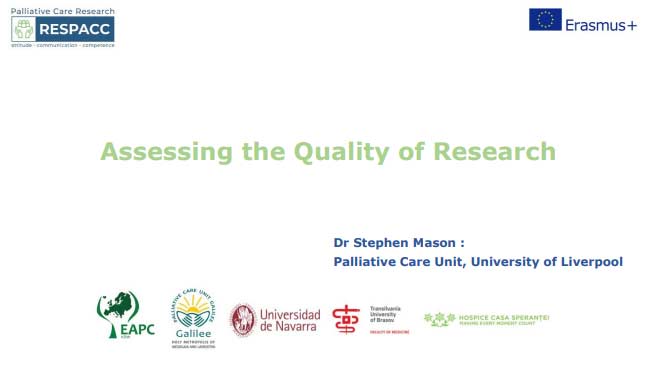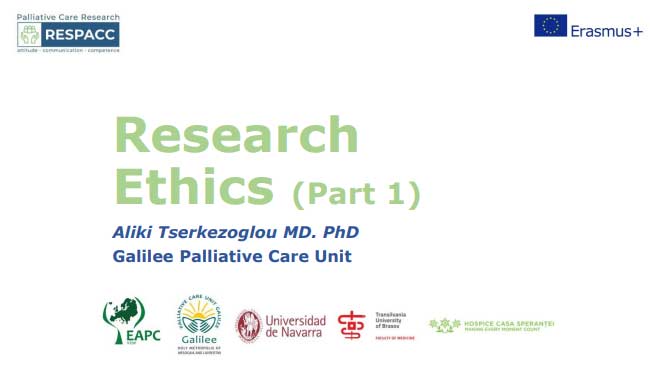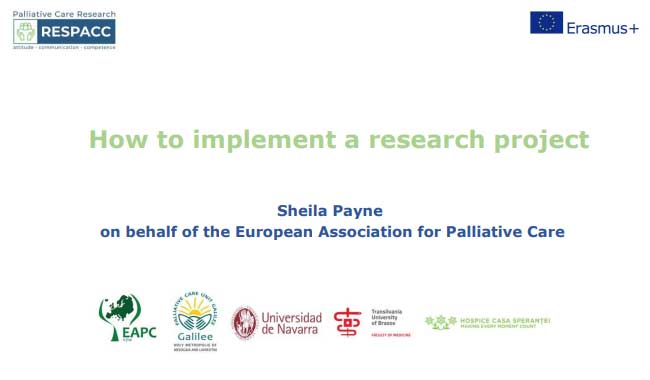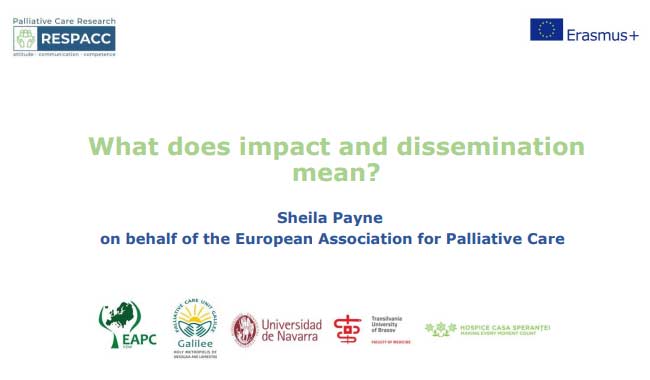In the current process of integrating palliative care into national health systems, it is important to address specific strategic objectives (according to WHO) such as: access to medication and services where needed, Education of professionals, revision of the legal framework and development of national policies.
presentation
This projectfocuses on the educationallevel by focusing on the research competencies of palliative care professionals to improve their daily clinical internshipand thus create a added value, both for the patient and the health care system. As researchskills are necessary for lifelong learning, the level of researchin the formal Educationvaries between countries and between palliative care professionals and educators. A well-targeted, quality researchcan answer important questions and provide evidence to inform decisions at internshipclinical and developmentpolicy.
The researchas one of the core competencies in palliative care is important because:
a) there is a need to identify and address issues relevant to palliative care patients;
b) establishes a basis for what is considered good internship;
c) and identifies better ways to assist in symptom control.
RESPACC aims to include core research competencies as part of the clinical practices of palliative care professionals with the following objectives:
1. Design effective Education strategies to improve the basic research competencies of palliative care multidisciplinary team members and teams.
2. Stimulate development and the use of innovative approaches that increase the effective uptake of evidence-based research in palliative care.
3. Increase the research capacity of up to 48 palliative care professionals.
4. Raise awareness among palliative care providers of the importance of integrating research into the clinical internship .
Training activities
Webinar 1: Tips for a good journal paper
Webinar 3: How to integrate and organise JOURNAL CLUBS within your palliative care clinical team
Webinar 2: Paper writing
Webinar 4: Experiencing JOURNAL CLUB: How to generate interest and engagement at the level of the clinical team
Introducing palliative care clinicians to critical reading and academic writing. Athen, Greece (2- 4 May 2022)
→ Introduction to Philosophy of Science (video)
→ Science Literacy (video)
→ Retrieving Relavant Literature for your clinical issue (video)
→ Critical Reading of scientific text (video)
→ Understanding the Quality of the article (video)
→ Publishing your research as an article (video)
→ Presenting your research at the conference - poster and oral presentation (video)
Translating clinical issues into research projects. Bucharest, Romania (26- 30 September 2022)
→ What is research (video)
→ How to do a literature review (video1), (video2)
→ What are, when and how to use quantitative research (video)
→ Quantitative research approaches (video)
→ Making sense of the data (video)
→ When and how to use qualitative research (video)
→ Methodology and data collection (video)
→ Qualitative analysis common aspects of making meaning of data (video)
→ When and how to use mixed methods (video)
→ Assessing quality of research (video)
→ Research ethics (video1), (video2)
→ How to implement a research project (video)
→ What does impact and dissemination mean (video)
Materials of work
Methodologies
Scientific articles
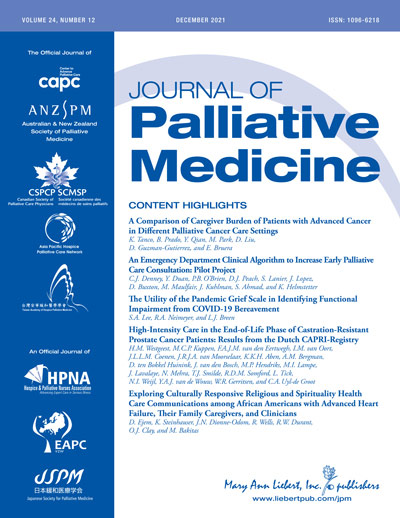 → Journal of Palliative Medicine (1 Nov 2021): Undertaking Research Using Online Nominal Group Technique: Lessons from an International Study (RESPACC)- Stephen Mason, Julie Ling, Daniela Mosoiu, María Arantzamendi, Aliki J. Tserkezoglou, Oana Predoiu, Sheila Payne
→ Journal of Palliative Medicine (1 Nov 2021): Undertaking Research Using Online Nominal Group Technique: Lessons from an International Study (RESPACC)- Stephen Mason, Julie Ling, Daniela Mosoiu, María Arantzamendi, Aliki J. Tserkezoglou, Oana Predoiu, Sheila Payne
Team
Team
Funding (2020-2022):

Ref. 2020-1-RO01-KA202-080128


